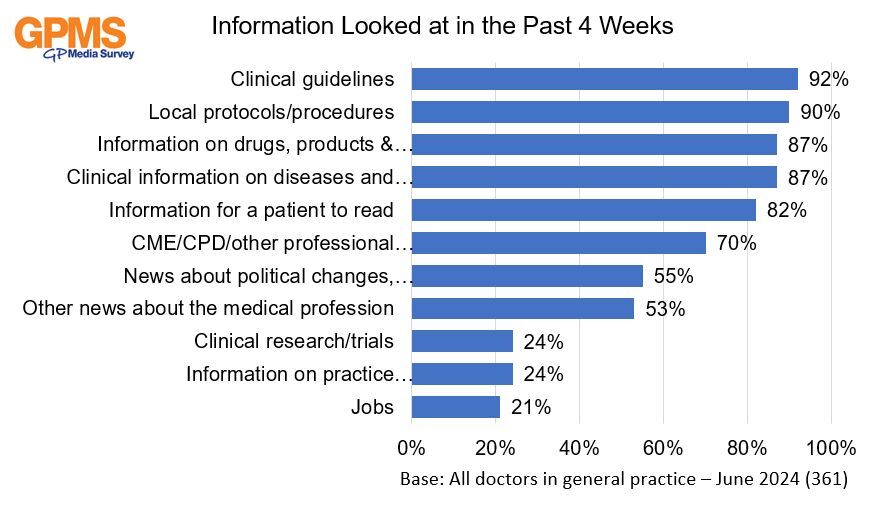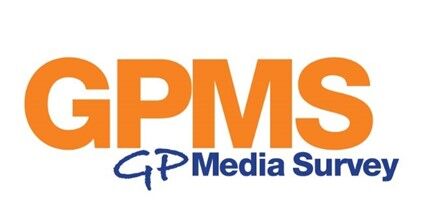We all know that GPs need to keep up with developments in medicine and general practice. But exactly how do GPs do this with the range of materials available to them and what is most important to them?
The GP Media Survey has been tracking this for over 20 years and the latest edition was released last month. Cogora, the publishers of Pulse, is one of seven organisations which fund the survey. The annual survey sample is representative by gender, region and practice size. Over the series, we can observe changes in the profile of GPs, most notably: the proportion of female GPs has increased (59%, compared to 49% 10 years ago); conversely, the proportion of partners has decreased (54%, compared to 71% 10 years ago).
In all, 361 GPs took part in the latest survey. The survey asks about 13 areas of clinical special interest. It found 71% of GPs claimed at least one area, with women’s health being the most common (39%). Infectious diseases is the least common area (3%).

Here’s what the survey tells us about their work and their information needs…
When asked which types of information they had looked at in the past four weeks, the five most common areas were: clinical guidelines (looked at by 92%); local protocols and procedures (90%); information on drugs, products and treatments/prescribing information (87%); clinical information on diseases and conditions (87%); and information for a patient to read (82%). The lowest ranked item was jobs, with only 21% of GPs looking at job information in the past four weeks.
When asked how useful they found 12 different sources of information, the top sources were clinical guidelines, events/meetings/conferences/webinars and CME/CPD/other medical educational materials (97%, 92% and 85% respectively found ‘useful’). Furthermore, 71% and 54% found medical publisher websites and printed medical journals/publications ‘useful’. Far fewer GPs regarded pharmaceutical/other company literature/mailing, reps and websites as ‘useful’ (29%, 27% and 20% respectively).
If you are a fully qualified GP working in the UK, you can help us boost the survey sample and let us know your information priorities. The survey will help us ensure we can tailor the information we provide to your needs. In return for your help, we will make a £5 donation to charity or send you an equivalent Amazon or Marks & Spencer voucher. To take part in the survey please click here. The responses you provide will be treated in confidence by the survey contractor, Accord.me.UK.
For further information, please contact [email protected].
Pulse July survey
Take our July 2025 survey to potentially win £1.000 worth of tokens












